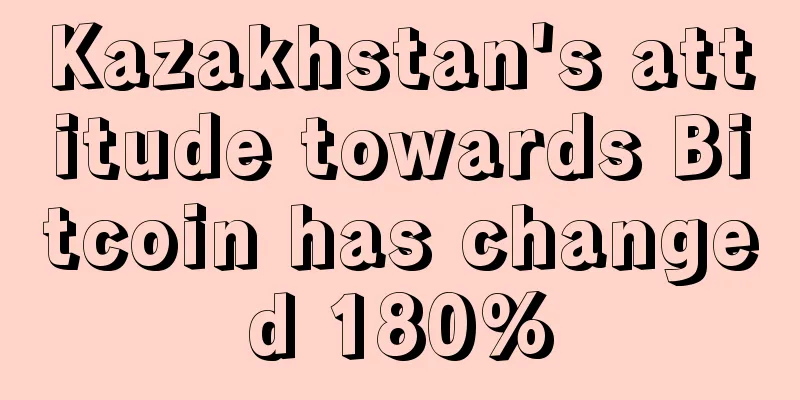Kazakhstan's attitude towards Bitcoin has changed 180%

|
Kazakhstan’s fiat currency, the tenge, has been falling against the dollar for decades, hitting a record low recently. In stark contrast, trading activity in the digital currency Bitcoin has been growing in the country. Kazakhstan's currency problemBefore independence, the Kazakhstan Soviet Socialist Republic was one of the republics of the Soviet Union. On December 16, 1991, Nursultan Nazarbayev declared Kazakhstan independent, making it the last country to gain independence after the disintegration of the Soviet Union. In 2014, Kazakhstan's GDP was approximately $420 billion, making it the largest and most powerful economy in Central Asia. Kazakhstan’s national currency, the tenge (KZT), has performed better than its neighbors thanks to its strong economic prospects, but the tenge has been falling against the dollar year after year for a variety of reasons, including corruption and oil prices. Last winter, the tenge hit a record low against the dollar. The tenge has lost nearly 70% of its value since the 2008 financial crisis, hitting the savings of the country's citizens and leaving many seeking safer ways to store value. Kazakhstan’s attitude towards cryptocurrencies shiftsFor centuries, Kazakhstan has followed the footsteps of Russia, both culturally and politically. Previously, Russia attempted to ban cryptocurrencies, and Kazakhstan has also made similar announcements. As early as 2014, the head of the Central Bank of Kazakhstan, Kairat Kelimbetov, pointed out that the Central Bank of Kazakhstan may "label Bitcoin as a financial pyramid scam." Daniyar Akishev Thankfully, after Russia relaxed its policies, it seems that Kazakhstan, and Kelimbetov’s successor, Daniyar Akishev, have shifted their attitude towards the Bitcoin project.
Currently, there is no Kazakh Bitcoin exchange on the market, but the tenge (KZT) is traded on LocalBitcoins and some small exchanges. More importantly, Bitcoin Kazakhstan (a Bitcoin advocacy center) has provided Bitcoin consulting, training, business networking, mining and other services in the country's largest city, Almaty, with the goal of promoting the use of Bitcoin in the Republic of Kazakhstan. The advocacy center was founded in 2014 by Boris Komarov, who told EurasiaNet:
The infrastructure of Bitcoin in Kazakhstan is also becoming more and more complete. In December last year, the Almaty region welcomed the first Bitcoin ATM. The owner, Kanat Amrenov, admitted that although there is not enough Bitcoin traffic at present, the machine has not yet been profitable, but he believes that placing the machine in the country’s prime commercial location should help promote Bitcoin. He hopes to make a profit this fall and then buy more machines. Do you think Bitcoin acceptance will keep growing in Kazakhstan? Leave your comments below. |
<<: Coder Going By The Name Voldemort Is Working To Solve Bitcoin's Biggest Problem
Recommend
When you are away from home, you often miss the appearance of the food from your hometown.
In order to make a name for themselves and earn m...
What does a mole on the left side of the waist mean?
There are moles on many parts of our body, and th...
Will men with full chins have better fortune in their later years? Are people with full chins popular?
Different people have different fortunes. Some peo...
What does multiple marriage lines mean in palmistry?
What does multiple marriage lines mean in palmist...
Is it good to have a high brow bone and a sunken forehead? Analysis of the face of a woman with a sunken forehead and prominent brow bones
The forehead plays a vital role in physiognomy, a...
How to tell the gender of the baby from the face? Which positions are more accurate?
In fact, there are many opinions on the gender of...
The location of moles and destiny - what does a mole on a man's forehead mean?
A man with a lucky mole on his forehead can do th...
Does the bulging veins on the forehead mean that you are vicious and easily angry?
Judging from the face, if a person is an extremel...
Thinking under P2P - Supervision needs to strengthen the constraints on arbitrage behavior of public service institutions such as online media against innovative industries such as PTP
Due to zero marginal cost, the cost of creating, ...
The defendant in the Plus Token case was formally prosecuted by the procuratorate for suspected pyramid scheme crimes
On September 7, 2020, the China Procuratorate Net...
Palmistry: Will you have good fortune and happiness in the near future?
Palmistry: Will you have a happy event and make a...
People with asymmetrical mouths like to make excuses and have bad intentions
People with asymmetrical mouths have very strange...
Robinhood trials crypto wallet; Revolut to offer U.S. stock trading
Robinhood is reportedly testing cryptocurrency wa...
Shanghai Securities News: NFT is popular but its financial attributes should be reduced as much as possible
Wu said blockchain learned that on September 8, a...
How much does the city with the largest GDP in China love Bitcoin? Huobi National Tour Shanghai Station will show you!
Shanghai, a charming coastal open city, It is als...









